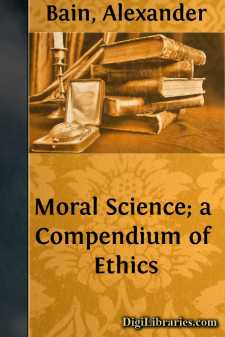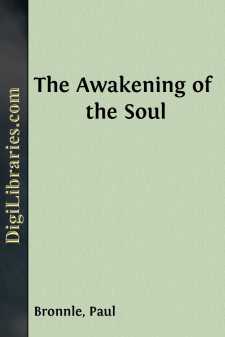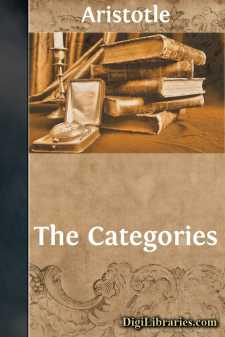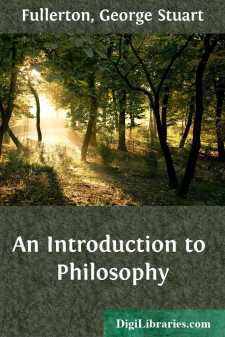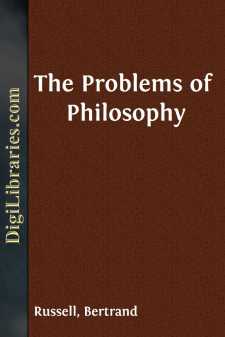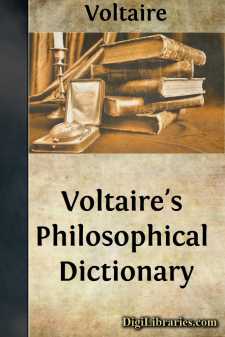Categories
- Antiques & Collectibles 13
- Architecture 36
- Art 48
- Bibles 22
- Biography & Autobiography 813
- Body, Mind & Spirit 142
- Business & Economics 28
- Children's Books 17
- Children's Fiction 14
- Computers 4
- Cooking 94
- Crafts & Hobbies 4
- Drama 346
- Education 46
- Family & Relationships 57
- Fiction 11829
- Games 19
- Gardening 17
- Health & Fitness 34
- History 1377
- House & Home 1
- Humor 147
- Juvenile Fiction 1873
- Juvenile Nonfiction 202
- Language Arts & Disciplines 88
- Law 16
- Literary Collections 686
- Literary Criticism 179
- Mathematics 13
- Medical 41
- Music 40
- Nature 179
- Non-Classifiable 1768
- Performing Arts 7
- Periodicals 1453
- Philosophy 64
- Photography 2
- Poetry 896
- Political Science 203
- Psychology 42
- Reference 154
- Religion 513
- Science 126
- Self-Help 84
- Social Science 81
- Sports & Recreation 34
- Study Aids 3
- Technology & Engineering 59
- Transportation 23
- Travel 463
- True Crime 29
Moral Science; a Compendium of Ethics
by: Alexander Bain
Description:
Excerpt
PART I.
THE THEORY OF ETHICS.
CHAPTER I.
PRELIMINARY VIEW OF ETHICAL QUESTIONS.
I.—The ETHICAL STANDARD. Summary of views.
II.—PSYCHOLOGICAL questions. 1. The Moral Faculty. 2. The Freedom of the Will; the sources of Disinterested conduct.
III.—The BONUM, SUMMUM BONUM, or Happiness.
IV.—The CLASSIFICATION OF DUTIES, and the Moral Code.
V.—Relationship of Ethics to POLITICS.
VI.—Relation to Theology.
CHAPTER II.
THE ETHICAL STANDARD.
1. Ethics, as a department of Practice, is defined by its End.
2. The Ethical End is the welfare of society, realized through rules
of conduct duly enforced.
3. The Rules of Ethics are of two kinds. The first are imposed under
a penalty. These are Laws proper, or Obligatory Morality.
4. The second are supported by Rewards; constituting Optional
Morality, Merit, Virtue, or Nobleness.
5. The Ethical End, or Morality, as it has been, is founded partly
in Utility, and partly in Sentiment.
6. The Ethical End is limited, according to the view taken of Moral
Government, or Authority:—Distinction between Security and
Improvement.
7. Morality, in its essential parts, is 'Eternal and Immutable;' in other parts, it varies with custom.
8. Enquiry as to the kind, of proof that an Ethical Standard is susceptible of. The ultimate end of action must be referred to individual judgment.
9. The judgment of Mankind is, with some qualifications, in favour of
Happiness as the supreme end of conduct.
10. The Ethical end that society is tending to, is Happiness, or
Utility.
11. Objections against Utility. I.—Happiness is not the sole aim of
human pursuit.
12. II.—The consequences of actions are beyond calculation.
13. III.—The principle of Utility contains no motives to seek the happiness of others.
CHAPTER III.
THE MORAL FACULTY.
1. Question whether the Moral Faculty be simple or complex.
2. Arguments in favour of its being simple and intuitive:—First, Our moral judgments are immediate and instantaneous.
3. Secondly, It is a faculty common to all mankind.
4. Thirdly, It is different from any other mental phenomenon.
5. Replies to these Arguments, and Counter-arguments:—-First; Immediateness of operation is no proof of an innate origin.
6. Secondly, The alleged similarity of men's moral judgments holds only in a limited degree. Answers given by the advocates of an Innate sentiment, to the discrepancies.
7. Thirdly, Moral right and wrong is not an indivisible property, but an extensive Code of regulations.
8. Fourthly, Intuition is not sufficient to settle debated questions.
9. Fifthly, It is possible to analyze the Moral Faculty:—Estimate of the operation of (1) Prudence, (2) Sympathy, and (3) the Emotions generally.
10. The peculiar attribute of Rightness arises from the institution
of Government or Authority.
11. The speciality of Conscience, or the Moral Sentiment, is
identified with our education under Government, or Authority....


